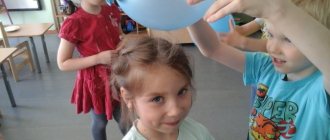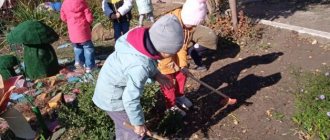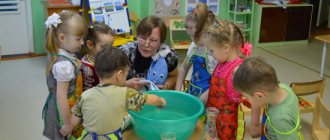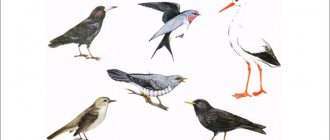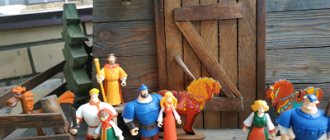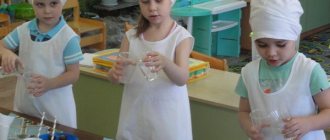Development of the environmental theme
After the game, it would be advisable to organize an experiment. However, conducting experiments necessarily includes educational and research activities in the preparatory group. Topics related to ecology are successfully explored during the experiments.
Only two aquariums are needed. With clear and cloudy water. The experiment is based on questions. The teacher should ask them to the children, who, in turn, will have to answer them.
The questions are simple. Does the water have a smell? Does it taste? What about the color? Each answer involves drawing conclusions. How to prove that water is transparent and has no color? To do this, the teacher must place two glasses in front of the children. With water and milk. And then invite them to place a spoon in each glass and see in which one it is visible.
Then you need to immerse several objects in each vessel - pebbles, for example, or jewelry. And ask a few more questions. In which aquarium are objects visible? Do they have the same water? In which of them, theoretically, would fish feel good? And would it benefit people if muddy water flowed from the tap rather than clear water? Children can provide answers to each of these questions, and they can even justify them.
Finally, you can conduct a visual experiment. Take a vessel with a funnel, at the bottom of which put a “filter” - a napkin, cotton wool, charcoal and a bandage. Then start pouring dirty water into it - clean water will settle to the bottom. Children will see the cleaning process with their own eyes. This will help them realize the natural value of water and teach them how to conserve it.
Experiments with salt
During the lesson, children should understand that a common culinary additive is not just a seasoning, but a unique element. After all, acquiring new knowledge is where cognitive development, cognitive and research activity lies!
The preparatory group of students must concentrate. Before their eyes, the teacher fills two transparent glasses with water. Then pour 2 tablespoons of salt into one and mix thoroughly. Then he puts an egg into a glass of fresh water. It is sinking - the children should notice this. Afterwards, the teacher lowers the egg into a glass of salted water. And it pops up! Such a bright experiment will allow children to remember that objects do not sink in salt water.
Project method
This is one of the most effective technologies, the use of which involves cognitive and research activities in the preparatory group. She supports a competence-oriented approach in the educational process better than others.
The basis of the project is a pragmatic focus on results, which can only be achieved by solving a practically or theoretically significant problem. And this, in turn, is achieved through the application of knowledge that children receive during the theoretical part of the lesson. It is mandatory, because the project method is aimed at the independent activities of students, carried out by them over a certain time period. And usually collectively. The group approach in preschool educational institutions is the most optimal.
Game element
Cognitive and research activities in the preparatory group can affect any area. The main thing is that they are relevant, interesting and useful. A good option are topics related to the surrounding world. You can teach a lesson about the importance of water. Such a lesson will help consolidate children’s knowledge about it, introduce them to its properties and cultivate a caring attitude towards it. By the way, the teacher should voice goals and objectives at the organizational moment of the lesson, as an introduction.
You can start the lesson with a didactic game. Here's the gist: the teacher plays water sounds and asks the children to listen to them. It could be the sound of the sea, a rainstorm, a waterfall, a river flow, a dripping faucet. After this, the recording is turned on again, and as the children listen, they lay out cards in front of them depicting the “source” of the sound of water. The teacher must prepare them in advance.
Conversations about culinary
What else is every child familiar with since childhood? Of course with food. And this “sphere” is also definitely worth using. Fortunately, there are no thematic restrictions - this is what is good about direct educational activities (DEA).
Cognitive and research activities in the preparatory group in this regard can be built around... salt. Children will find it interesting. After all, each of them knows that salt is tasteless. But during the lesson they will have the opportunity to learn about its benefits.
You can start with this riddle: “I’m not so tasty on my own, but everyone needs food.” By voicing it, you will be able to concentrate the students’ attention and make them think. Once they find the answer, you can begin to expand on the topic.
The teacher can talk about the types of salt - table, kosher, rock, sea, black and even in the form of flakes! It is better to accompany the story with pictures (presentation) and brief interesting facts about the features of each type. And then from the general educational aspect you can move on to the more interesting part.
Creative activity
Cognitive and research activities in (preparatory group) reality must necessarily be accompanied by experiments in which the students themselves will directly participate. The teacher can invite them to make colored salt, because it is easily colored. To do this, you just need to grate the chalk on a small grater and mix it with the culinary additive. Children are able to cope with this task on their own. Then you can invite them to make decorations - fill decorative glass bottles with colored salt.
Realizing your potential
Cognitive and research activities in the preparatory group are carried out very easily. After all, a characteristic feature of all young children is an increased interest in everything that surrounds them. It is vital for kids to learn something new every day and get answers to their eternal “Why?” And the task of a preschool teacher is to maintain this child’s interest.
Also, in each of his pupils, the teacher must consider individual abilities, which are not found in the child’s skills and knowledge. Children demonstrate these abilities through the dynamics of acquiring various skills. And in order to realize their natural potential for learning, the teacher is obliged to direct the entire educational process to the development of memory, creative imagination, and attention.
In this case, the child must work with objects himself, albeit under the guidance of a teacher. This way the student gets to know the world around him better, because he passes everything he knows through his personal worldview.
Types of projects
There are five of them in total. It is customary to distinguish between practice-oriented, research, information, creative and role-playing projects. They are all different, but united by a common goal, which is to study and deeply understand the material.
The easiest to implement are those that belong to the last two groups. This is due to the specifics of the age category. Children like to try on different roles, portray some characters, heroes. And creative projects are good for their unconventional and free approach to the presentation of results.
Talking about holidays
Holding classes about celebrations and traditions is also a good idea. What holiday can be affected by educational and research activities? New Year! The preparatory group will be happy to hear about the history of this celebration and how it is celebrated in other countries. This topic can be developed well. As, in fact, any other related to the holidays. The most important thing is to choose the right day for the lesson. You can talk about the New Year in mid-December, about Easter in April, and pay attention to March 8 back in February. The principle is clear - the activity must be appropriate.
